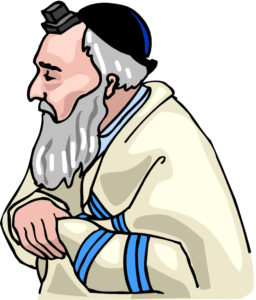
Numbers 22
Numbers 22:5, Pethor…by the river. Balaam was from the land of Pethor, which is “by the River.” This is a reference to the Euphrates River, the great river of Babylon (The ArtScroll Stone Edition Chumash, p. 857). Thus Balaam was a Babylonian, although he may have been a transplanted Edomite according to some Jewish scholars (see The ArtScroll Bereishis/Genesis Commentary on Gen 36:32).
One of the aspects of Babylon of the last days is her religious system (Rev 13:11ff) the head of which is the false prophet (Rev 16:13; 19:20; 20:10). The Babylonian religious system of the end days is a blend of both good and evil (reminiscent of the tree by that name in Eden from which the serpent beguiled Adam and Eve away from YHVH’s path of truth and righteousness into a false religious system).
In the last days, YHVH is calling his people out of that false religious system (Rev 18:4) with its false prophets who prophesy a mixture of good and evil.
Is not modern traditional Christianity a mixture of good and evil, truth and error (i.e. doctrines and traditions of men along with some paganism mixed in)? Reflect on the implications of this. To what degree have you heeded YHVH’s call to “come out of her”—namely, any man-made religious or church systems that has components that are contrary to the Word of Elohim?
Like many in mainstream Christianity, the Scriptures seems to indicate that Balaam had some knowledge of the truth of YHVH, but he refused to wholeheartedly submit to YHVH’s word and will (2 Pet 2:15).
Let us not forget Yeshua’s warning about false prophets arising in the last days who might deceive the very elect (Matt 24:24).
Numbers 22:10ff, Crossing over. Many carnal people—especially those playing at religion—want to be like YHVH’s saints, and to be the recipients of the blessings of Israel, and to be numbered among YHVH’s chosen, but few want to walk the difficult walk of holiness and righteousness required to receive these blessings and privileges. These may very well be the spiritual tares that surreptitiously exist along side the saints within their congregations.
Continue reading

